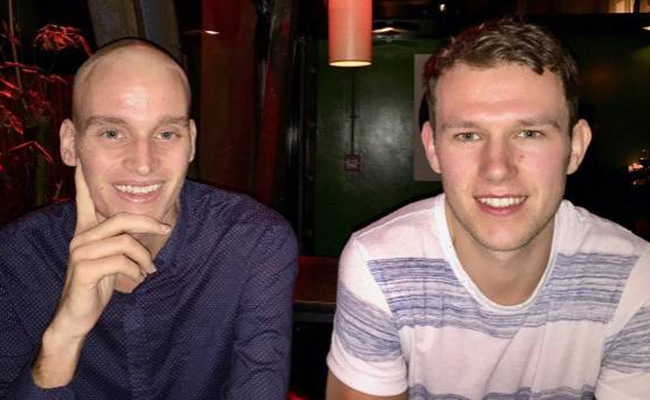Gay cancer patient heartbroken after being denied right to leave sperm for partner
Logan Morton's sperm will be destroyed unless it is donated to a woman

A gay cancer patient has been denied his right to leave his sperm for his partner.
New Zealand native Logan Morton, 22, was diagnosed with leukemia last April and has been undergoing chemotherapy since.
During his treatment, Morton was told chemotherapy would leave him infertile, and so he was asked if he wanted to freeze his sperm for future use.
A nurse helped him fill out paperwork to store his sperm through Fertility Associates, a fertility treatment organisation, but then realised that only a woman could legally receive his sperm.

Despite having a supportive partner who attended the clinic with him during his treatment, Morton was told his sperm would be destroyed if he chose not to donate it to a woman.
After discovering the news, he pleaded with the organisation that he wanted his boyfriend to have the rights to his sperm if he dies.
In response, Dr. Mary Birdsall, chairwoman of Fertility Associates, claimed they had been was disheartened by the news.
She told Stuff: “We really feel terrible that Logan was offended because we see ourselves as being an organisation that works really hard to meet all of our clients’ needs, it’s just that society is becoming more complicated in terms of reproductive options that are available and we just need to move with the times.”
Birdsall claimed that the country’s Human Assisted Reproductive Technology (HART) Act 2000, which covers sperm donation, wasn’t written with gay couples in mind.

The legislation says that sperm is only available to a specified person within “a specified time-frame.”
According to Birdsall, Fertility Associates understood this to mean that only a woman could use the sperm because “only a woman can use sperm to make a baby”.
She then revealed that the organisation are looking into changing the policy and claimed that it was the first time the issue had been raised with them.
Despite their pledge, Morton later described the experience as “deeply offensive”.
“Whether I would have chosen to write my partner’s name in there or not I’m not sure,” he said.
“We would have had that discussion, it was the fact that I couldn’t and I’m sure there are other people in the situation who would very much like to who are unable to.”
After hearing that Fertility Associates was changing its policy, he said: “Obviously I’m thrilled that it’s been brought to their attention and they are willing to update the form and adapt their policy and definitely recognise they are working within legislation like they have to so I guess it boils down to an issue of… the legislation needs updating, doesn’t it.”
